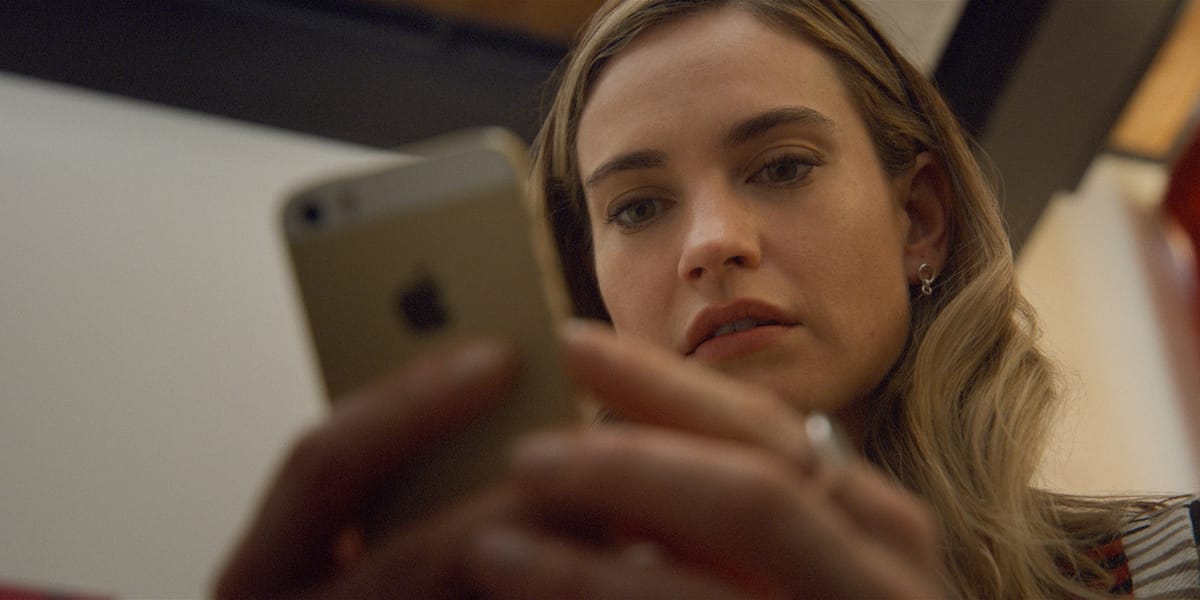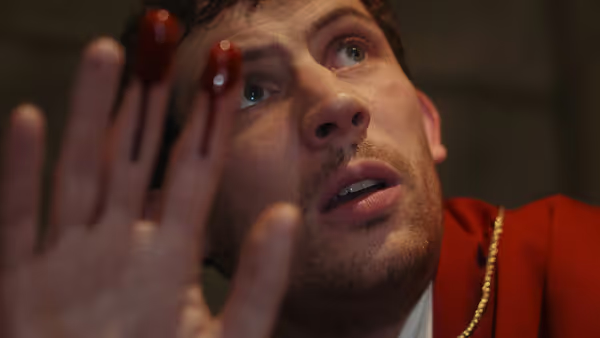Swiped | TIFF50
A biographical film about Whitney Wolfe Herd, founder and former CEO of Bumble - where the depth might shock you.

Shirtless selfies, fish pictures, groan-worthy bios, and the like - anyone who has experienced modern dating likely has spent some time navigating the bleak waters of dating apps. While there are many who have found success, there are also many of us who have sworn off dating apps only to re-download them again in a wine-fuelled haze. Online dating is now such normal (and exhausting) part of modern dating that it's strange to think of a time when it was not the norm. Swiped brings us back to that time, right before dating apps took the world by storm and tells the tale of the origins of these apps, loosely based on real life story of Tinder co-founder and Bumble CEO, Whitney Wolfe Herd.
The cast of the film is stacked - it stars Lily James as Whitney Wolfe Herd as well as Myha'la, Dan Stevens, Clea DuVall, and even an appearance by the endlessly swoonworthy Dermot Mulroney (I'm a My Best Friend's Wedding fan, can you tell?). I really appreciated Myha'la's performance as she skillfully played the nuance of a Black women navigating a predominately white workplace. She played the role so convincingly, I viscerally felt the dejection as her character was repeatedly passed over, unrecognized for her contributions, as she was undervalued and pushed aside. That is such a real experience for so many Black women and Myha'la played that experience with deep sense of care.
I went in the film excited to hear about the true story behind these apps that have both led to love and frustration for my peers. I was also wary of a film that propped up another white billionaire. However, I was mostly pleasantly surprised. While there was still a celebration of wealth accumulation (which was not for me at all), what was at risk of being a white feminist "girl boss" tale ended up being a nuanced take on how women navigate the world of tech. The film took the time to highlight how intersectionality impact the different lived experiences of women at work, highlights how white women can be complicit in these oppressive structures, and emphasizes the importance of taking true accountability. Our lead isn't always likeable, and that's kind of the point? Just when you thought the film might brush over Herd's microaggressions and attempts to be a part of the boys' club it somewhat holds her to account. While I wish the film had went further in its critiques of Herd's actions, I did appreciate the acknowledgement of the harm done and the importance of taking responsibility for one's actions.
I was not familiar with the true story, so I was surprised to find that the film actually focused more on Herd's time at Tinder than her time as a Bumble CEO. In retrospect this choice makes sense, as her time at Tinder directly led to her founding Bumble. I do wish the film spent more time with Whitney and her team as they developed Bumble, however the outcome is still effective.
The film is also darker than expected. While it is mostly a fun tale of a woman taking her destiny into her own hands, it also explores the dark side of that experience, going in depth about the awful sexual harassment and abuse that Herd went through at her time at Tinder. The film also speaks to the bigger picture of the very real and scary world that women have to navigate just by existing. It took seriously the sexual harassment and assault that women who date men face when dating and the entitlement that men feel to their bodies, their focus and their time. I appreciate that the film took this seriously and took its time with exploring these themes.
All in all, the film was well executed and its themes came through effectively. I had a good time! I will note that the film ends with stating that Herd was not involved in the making of the film and that she is still under her NDA with Tinder. This makes it a bit challenging to parse what was Herd's actual experience and what was inferred. As such, while it is important to hold the facts shared in this film lightly, I still think that this film speaks to the very real experience of women navigating the world of work, dating, and life as a whole. It's in the sharing of our experiences that we realize we are less alone, and allowing us to forge our own paths ahead. Be that through starting one's own company, as Herd did, or refusing to engage with the entitlement of men - together, we can imagine a different path and disrupt these systems collectively.



